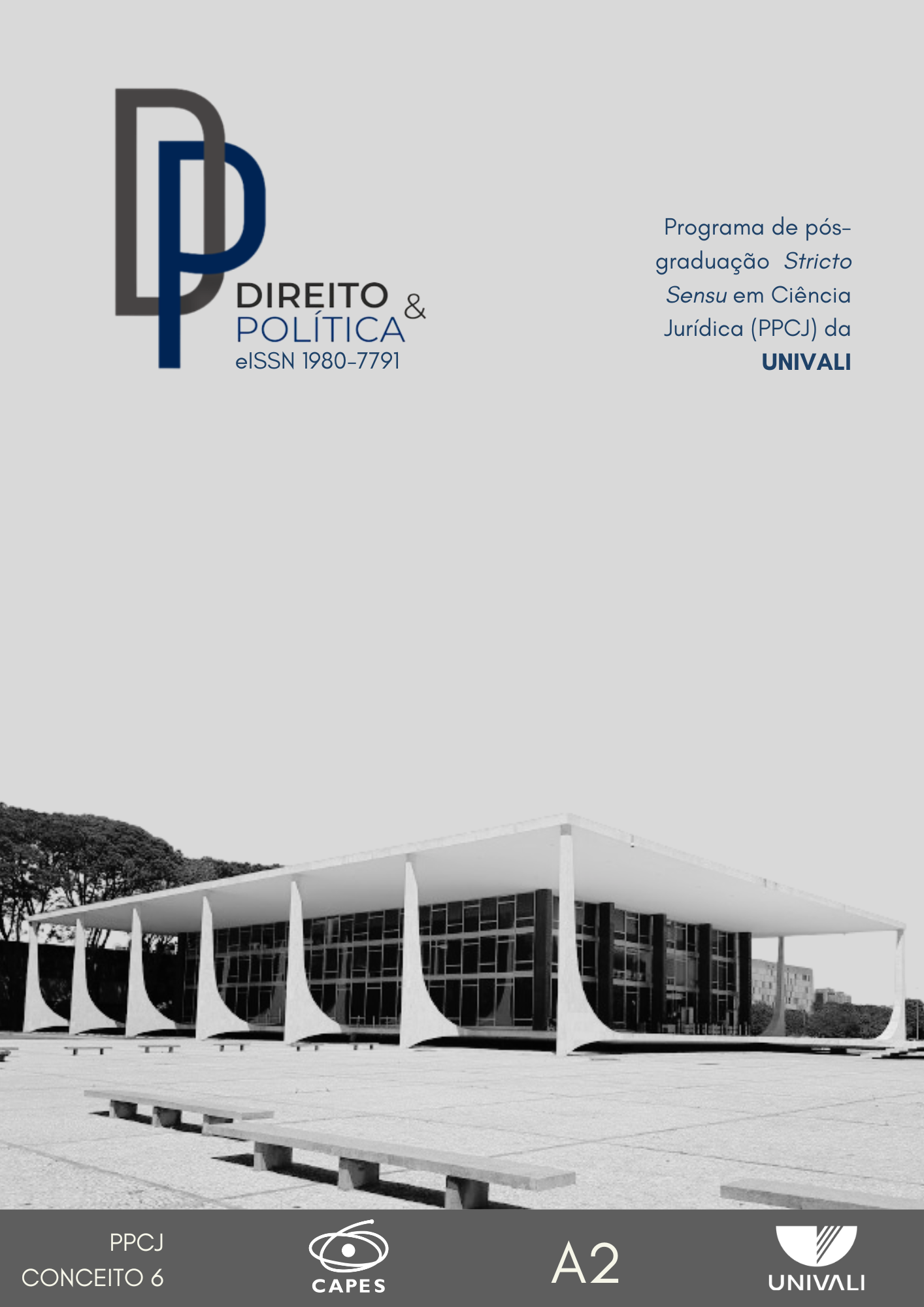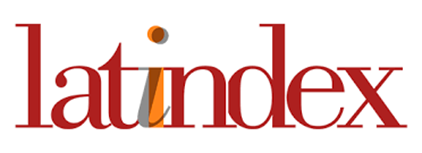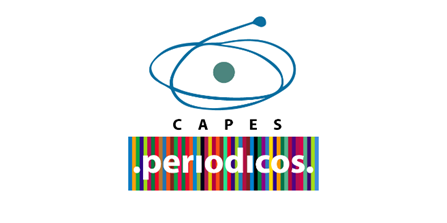DIMENSÕES SÓCIO-POLÍTICAS E JURÍDICAS DO SISTEMA ELEITORAL MOÇAMBICANO: UMA REFLEXÃO SOBRE OS CONFLITOS ELEITORAIS
DOI:
https://doi.org/10.14210/rdp.v19n2.p246-273Palavras-chave:
inclusão política, sistema eleitoral, violência eleitoral, democraciaResumo
Contextutuzaliação do tema: Este artigo debruça-se sobre as Dimensões sócio-políticas e jurídicas do sistema eleitoral moçambicano: uma reflexão sobre os conflitos eleitorais. O mesmo está relacionado com a necessidade de encontrar respostas legais para os desafios colocados pela democracia e pelas eleições em Moçambique, onde os conflitos surgem antes, durante e depois das eleições.
Objetivo: O objectivo geral do estudo é analisar como as dimensões sócio-políticas e jurídicas do sistema eleitoral podem minimizar os conflitos eleitorais em Moçambique partindo da pergunta: até que ponto o sistema eleitoral é fonte de conflitos eleitorais e, aliado a isso, como a sua dimensão sócio-política e jurídica pode ser a solução para reduzi-los?
Metodologia: Metodologicamente, enveredou-se pela abordagem qualitativa, tendo como técnicas de recolha de dados a pesquisa bibliográfica, documental, entrevistas semi-estruturadas com recurso aos métodos jurídico, histórico, hermenêutico e comparativo. A selecção dos participantes foi realizada por meio de amostra de conveniência, o que possibilitou a construção de uma técnica de categorização na apresentação e análise dos dados. A análise de conteúdo e a triangulação foram métodos utilizados no processo de interpretação e discussão dos resultados.
Resultados: Feita a análise, concluiu-se que a dimensão sócio-política e jurídica do sistema eleitoral moçambicano mostra a violação dos pressupostos processuais de recurso e interpretação das formalidades da lei prejudica a análise dos litígios eleitorais apresentados, nos locais de votação, em detrimento dos lesados, o que acaba desacreditando o sistema de justiça como um todo. Contudo, a efectivação de aspectos sociopolíticos e jurídicos que influenciam o processo eleitoral em Moçambique, pode reduzir os conflitos que caracterizam o processo democrático do país.
Downloads
Referências
AAVV. ACORDO GERAL DE PAZ DE MOÇAMBIQUE, Política Internacional, Vol. 1, N.° 6, Primavera 1993, p. 9.
Acórdão n.º 21/CC/2014 de 29 de Dezembro, sob Processo n.º 17/CC/2014 (Validação e Proclamação dos Resultados das Eleições Presidenciais, Legislativas e das Assembleias Provinciais de 15 de Outubro de 2014)''
ALDEN, Chris; MARK, Simpson. Mozambique: a Delicate Peace, The Journal of Modern African Studiesn, vol. 31, nº 1, p. 109–130, p. 1993. DOI: https://doi.org/10.1017/S0022278X00011836
ASMAL, “Electoral systems: A critical survey”, Occasional Paper 1990:4.
BOGDANOR, Vernon, The Blackwell encyclopaedia of political institutions. Oxford, UK; New York, NY, USA: Blackwell Reference, 1987.
BRAZÃO, Mazula. entrevista concedida na Matola, aos 12 de Dezembro de 2022
BRITO, Luís de. A Democracia à Prova das Urnas: Elementos para um Programa de Pesquisa Sobre a Abstenção Eleitoral em Moçambique, Conference Paper n° 03, Maputo: IESE, 2007.
CARDOSO, Carlos, A cela da morte Jornal Metical de 29 de Novembro 2000 Detidos de Montepuez não comiam há 9 dias. Moçambique on-line. Acesso em: 23 de setembro de 2024. Disponível em: https://www.mol.co.mz/noticias/metical/2000/mt1129.html.
CARTER, Center, Observação das Eleições de Moçambique de 2004, 2005, p. 13. Atlanta. Disponível em: https://www.cartercenter.org/documents/2260.pdf
CARVALHO, Hamilton Sarto Serra de. A Democracia Moçambicana: Construção, Desafios e Perspetivas, Lisboa, Universidade Autónoma de Lisboa, 2017.
COSTA, Daniel Castro Gomes da. Contencioso eleitoral - uma análise em direito comparado - Portugal versus Brasil, Lisboa: Universidade Autónoma de Lisboa, 2017.
CRM1990 – CONSTITUIÇÃO DA REPÚBLICA DE MOÇAMBIQUE DE 1990, aprovada pela Assembleia Popular em 2 de Novembro de 1990, e posteriormente alterada.
CRPM – CONSTITUIÇÃO DA REPÚBLICA POPULAR DE MOÇAMBIQUE – aprovada pelo Comité Central da FRELIMO em 20 de Junho de 1975.
CUANGUALE, António Júlio, Tensão Político-Militar e suas Implicações na Consolidação Democrática em Moçambique (1998 – 2015): Análise em Torno da Governação Eleitoral, Maputo: UEM, 2016.
CUNHA, Murilo Bastos da. Metodologia para estudo dos usuários de informação científica e tecnológica. Rev, vol, 10 nº 2, Brasília: Bibliotecon de Brasil, 1982.
FORQUILHA, Salvador. Democracia e Municipalização em Moçambique: Gradualismo, Participação Local e Serviços Básicos, Maputo: IESE, 2016.
GOMES, Carla Amado, Estudos sobre Contencioso Administrativo e Constitucional Moçambicano, Maputo, OH! Multimedia, 2017.
GRIFFITH-TRAVERSY, Mary Anne. Democracy, Parliament and Electoral Systems. London: Commonwealth Parliamentary Association/Pluto Press, 2002.
HARROP, Martin; MILLER; William L. Elections and Voters: acomparative introduction. London, Macmillan Publishers Press, 1987. DOI: https://doi.org/10.1007/978-1-349-18912-0
HERRON, Erik, et al, The Oxford Handbook of Electoral Systems. London: Oxford University Press, 2018. DOI: https://doi.org/10.1093/oxfordhb/9780190258658.001.0001
HOPKINSON, Nicholas. Parliamentary Democracy: Is There a Perfect Model? Abingdon: Routledge Revivals, 2017.
HUNTINGTON, S. P, Terceira Onda: a democratização no final do século XX. São Paulo, Ática, 1994.
IJPHART, Arend d'Angremond; GROFMAN, Bernard, Choosing an electoral system: issues and alternatives, New York: Praeger, 1984, p. 4.
JAMES R, Scarritt; SHAHEEN Mozaffar, The Potential for Sustainable Democracy in Africa. The International Studies Association: San Diego, 19 de Apr de 1996.
KOELBLE, Thomas. The New Institutionalism in Political Science and Sociology. Comparative Politics, vol. 27, nº 2, pp. 231-243. 1995. DOI: https://doi.org/10.2307/422167
lei nº. 7/2007, lei n.º 10/2007 e lei nº. 15/2009
LEONARD, Dick; Natkiel, RICHARD. The Economist world atlas of elections: voting patterns in 39 democracies. London: Hodder & Stoughton, 1987.
LIJPHART, Arend d'Angremond; GROFMAN, Bernard. Choosing an electoral system: issues and alternatives. New York: Praeger, 1984.
LUNDELL, Krister. Contextual Determinants of Electoral System Choice: A Macro-Comparative Study 1945–2003. ÅBO, Finland: Åbo Akademi University Press, 2005.
NEWLAND, Robert A. Comparative electoral systems. London: Arthur McDougall Fund, 1982.
NICOLAU, Jairo. Sistemas eleitorais. 5. ed., rev. actual. Rio de Janeiro, Editora FGV Ed. 2004
OLIVIER, W. H. Party systems and electoral systems. In VAN VUUREN, D. J.; KRIEK, Dan. J.; BOOYSEN, H. Political Alternatives for South Africa. Duraban: Butterworths, 1983.
PAPPALARDO, Adriano; GIANFRANCO Baldini, Elections, Electoral Systems and Volatile Voters, London: Palgrave Macmillan, 2008.
RIBEIRO, João Ubaldo, Política, Quem manda, Por que manda, Como manda. — Rio de Janeiro: Nova Fronteira, 1981, p. 131.
ROKKAN, Stein Citizens. Elections, parties; approaches to the comparative study of the processes of development. New York: McKay, 1970,148-151.
SELWAY, Joel; TEMPLEMAN, Kharis. The Myth of Consociationalism? Conflict Reduction in Divided Societies, Sage Journals, vol. 45, n. 12, 2011. https://doi.org/10.1177/00104140114253. DOI: https://doi.org/10.1177/0010414011425341
SCHRIRE, Robert A. Critical choices for South Africa: an agenda for the 1990s. Oxford University Press: Cape Town. 1990.
VILLIERS, Bertus de. An electoral system for the new South Africa, Political Science, Law Journal of juridical science, Tydskrif vir Regswetenskap (2) 43-71, 1st. December 1991.
WEIMER, Bernhard. Moçambique: Descentralizar o Centralismo – Economia Política, Recursos e Resultados. Maputo: Instituto de Estudos Sociais e Económicos, 2012, p. 286.
ZECA, Kátia Sara Henriques Xavier, Revista Brasileira de Estudos Africanos, Porto Alegre, v. 5, n. 9, Jan./Jun. 2020, p. 121-145.
Downloads
Publicado
Como Citar
Edição
Seção
Licença
Na qualidade de autor(es) da colaboração, original e inédita, sobre o qual me(nos) responsabilizo(amos) civil e penalmente pelo seu conteúdo, após ter lido as diretrizes para autores, concordado(amos) com o Regulamento da Revista Eletrônica Direito e Política e autorizo(amos) a publicação na rede mundial de computadores (Internet), permitindo, também, que sua linguagem possa ser reformulada, caso seja necessário, sem que me(nos) seja devido qualquer pagamento a título de direitos autorais, podendo qualquer interessado acessá-lo e/ou reproduzi-lo mediante download, desde que obedeçam os Direitos Autorais.


















